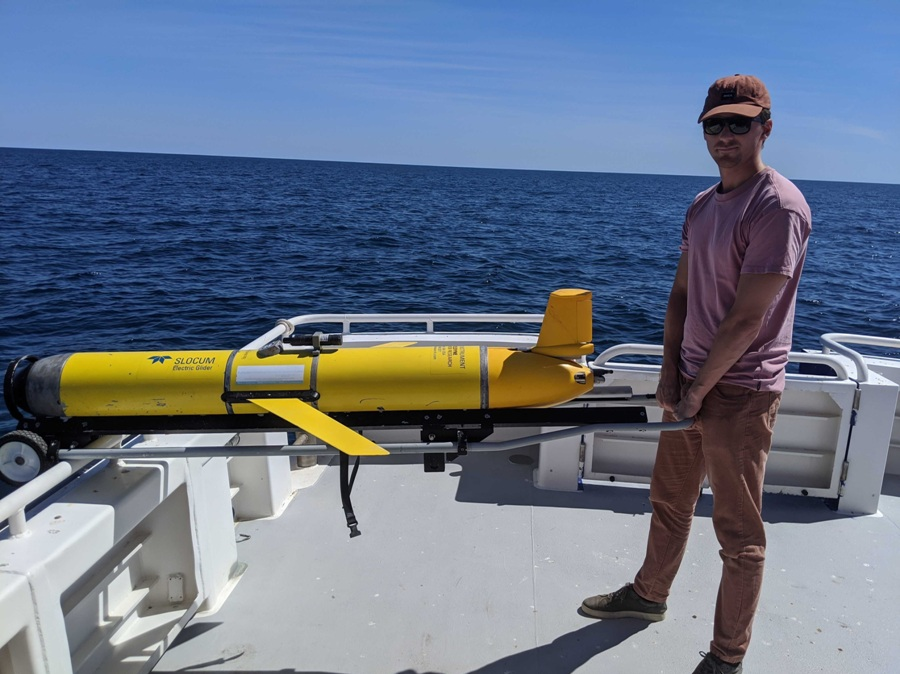May 7 2020
Ocean gliders operated by The University of Western Australia from The Australian Integrated Marine Observing System’s (IMOS) facility have been deployed off the coast of Broome this week to collect ocean temperature data vital for understanding the marine and land heatwave affecting northern Australia.

The land heatwave has broken national records with recent April temperatures soaring above 40C. Similarly, the ocean has also warmed with ocean temperatures more than two degrees higher than expected for this time of the year. The marine heatwaves have large environmental impacts with risks of mass coral bleaching.
The marine heatwave extends across the whole of northern Australia including the Gulf of Carpentaria and the Great Barrier Reef. Ocean Modelling, Analysis, and Prediction System OceanMAPS, has forecast near-surface ocean temperatures in northern Australia will continue to rise.
Professor Chari Pattiaratchi, from UWA’s Oceans Graduate School and Oceans Institute, is the leader of the IMOS Ocean Glider Facility. Professor Pattiaratchi said while many scientific deployments were constrained by COVID-19 social distancing requirements, the glider project was in a unique position of being able to collect much-needed data.
“The UWA-operated gliders are controlled by two people – a skipper and technician – with data analysed remotely, so we are not constrained by COVID-19,” he said.
“This deployment will provide us with accurate data and the evidence needed to verify the extent of the impact from the heatwave.
“We are particularly interested in analysing tidal mixing which plays a strong role in controlling ocean temperatures.”
The UWA IMOS glider team is also considering deploying gliders off the coast of Two Rocks and Onslow in WA, as well as the Great Barrier Reef in Queensland and NSW in coming weeks.
IMOS Director Dr Michelle Heupel said despite the disruptions caused by COVID-19 the IMOS community had continued to collect observations and conduct field operations where permitted.
“The preparedness and flexibility of the IMOS Ocean Glider team is a great example of our ability to adapt, adjust and continue to provide crucial ocean observations,” Dr Heupel said.